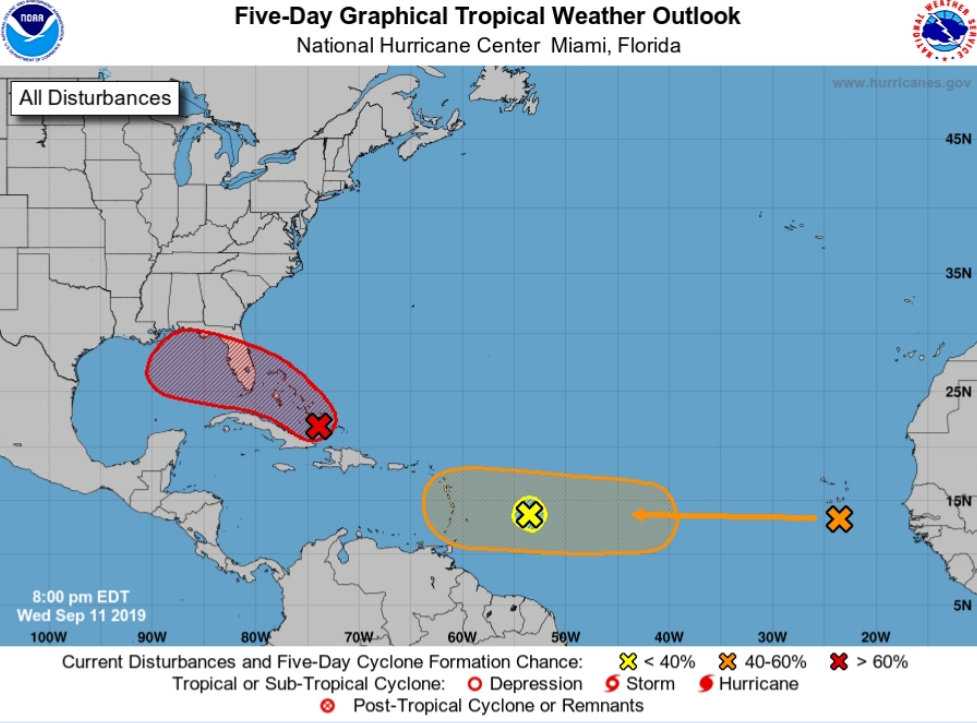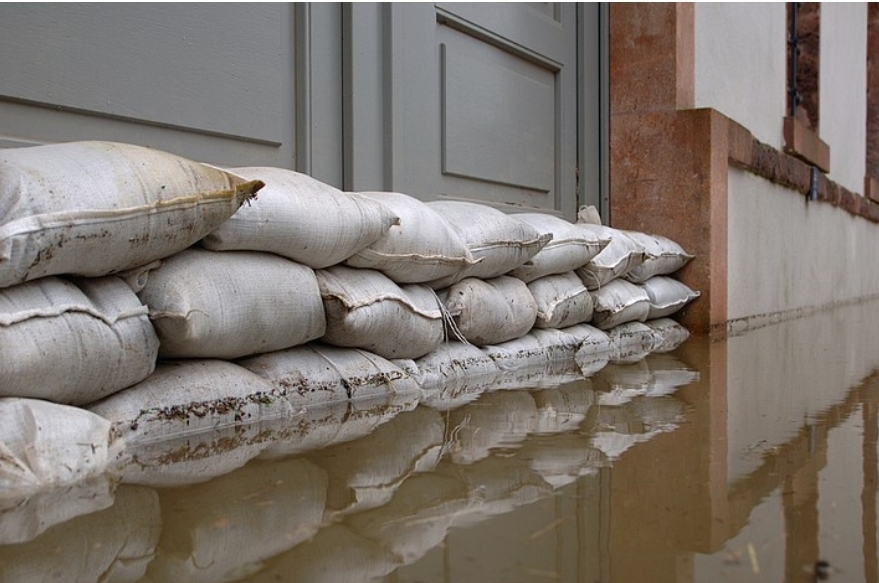
I’ve lived in Central Florida for pretty much my entire life. I’m in my 30’s now, so I’ve gone through quite a few hurricanes and tropical storms. Not too long ago, Hurricane Dorian was looming outside the front door. This was a slow-moving storm….. very slow moving. It came just as we entered the peak of hurricane season, and made me think about all of the things we need to do to prepare ourselves and our homes before the storm hits. Looking back over the things I’ve done in the past, here are the 4 top things that I do to get ready to endure the storm. I’m no professional or expert on disaster preparedness, so these are just my opinions and examples of things I’ve done that have worked well for me.
#1 – Supplies
Make a list of the things you need, and buy your supplies early. There is usually a period at the beginning of hurricane season where storm-related supplies are tax-free. This is a great time to get things like batteries, flashlights, first aid kit, battery-powered or hand crank radio, and a generator in case of power outage. Whole-home generators are becoming more popular, and I’m actually thinking about going that route soon. If you aren’t sure about what you should buy, ready.gov and floridadisaster.org have lists that you can reference to build a basic disaster supply kit. If you don’t already have a kit in place, consider buying everything that you need during that tax-free week, or sometime prior to the start of or early in hurricane season, and then just maintain your kit.
Don’t forget that your kit should include non-perishable foods, enough water to last you and your family a minimum of 7 days (1 gallon per person per day), a list of current medications, a complete change of clothing, and toiletries. And again, BUY EARLY. Water especially sells out very quickly in the days leading up to the storm. Do not wait until the last minute to try to get what you need. Getting a waterproof container for your important documents – insurance information, medical records, social security card, birth certificate, passport, etc. – is also key. If you have a pet, make sure you have their proper identification, immunization records (may need to be shown at shelters), ample food and water, a carrier or cage, muzzle and leash, and photo of you with your pet to help validate your ownership if you get separated. Keeping a photo of you with your family is also a good idea for the same reason.

#2 – Yard Preparedness
I have a large oak tree in my front yard. So, prior to the start of hurricane season every year, I look around the canopy to see whether or not it needs to be trimmed. Broken or dead limbs need to be removed. If not, they can cause a world of damage to my home and my neighbor’s homes if strong wind gusts pull them away from the tree. My tree towers several feet above the height of my roof, so I hire professional trimmers to come out and take care of it whenever it needs to be trimmed. I don’t have small trees or bushes in my yard anymore, but I recommend taking the same approach with them. If branches or limbs in your yard need to be removed, take care of it before hurricane season starts.
#3 – Windows and Shutters
The windows at my house are fairly old – some could actually stand to be replaced. The good thing though is that before I bought my house, the previous owners installed a hurricane-rated garage door and accordion shutters at each window, the sliding glass door to the patio, and at the front door. Having the extra protection to cover glass openings not only gives peace of mind and protects your assets, but coupled with a roof that’s been installed to code could also provide a nice discount on your homeowner’s insurance.
Using plywood to cover your window openings is also a wise thing to do if you do not have shutters, some type of hurricane screen, or impact-rated windows installed. My parents have been using plywood for years to protect the openings to their home during a storm. If you don’t mind the sweat equity it takes to put them up and take them down, they’re a great alternative.

And speaking of protecting the openings to your home, don’t forget to protect against water intrusion. These storms usually bring a lot of rain with them, and flooding and subsequent water damage can become a real concern. Water damage is something you DO NOT ever want to deal with. I’ve dealt with water damage in my home twice within the last 7 years due to corroded pipes, and it takes a lot of time, money, and energy to remedy. If you can avoid it, AVOID IT! Take preventative measures to keep water from entering your home. A lot of people use sandbags. I’ve also seen my parents cover the base of their sliding glass door with a sheet of plastic, then add sand or sandbags over top which also works great. What I’ve recently started doing to save time is buying topsoil from my local home improvement store. They work the same way as sandbags. To prepare for Dorian, I was able to get 10 bags for less than $19. Since my Mom has a decent sized garden, I just give the bags to her to use after the storm passes. I’ve heard of folks using bags of cat litter instead of sandbags or topsoil as well. They are pricier, but I hear they work great.
#4 – Common Sense
The last thing I recommend is hanging onto some good ‘ol common sense. With the way storms are tracked today, we normally have decent notice before they come. Be mindful of where you live and the construction of your home. If you live in a flood zone, make sure you have the proper insurance coverage to protect your home since your chances of water intrusion are likely higher. Depending on the intensity and track of the storm, you may need to evacuate. Make sure your disaster supply kit is ready, and that your home is prepared before you leave. You may be faced with an evacuation order if you live in a mobile or manufactured home. Living on a barrier island may also subject you to a mandatory evacuation even if surrounding areas are not under an evacuation order. Pay attention to which surrounding facilities are announced as shelters, or have a plan in place to stay with family, friends or at a hotel to keep yourself and your family safe. Never forget that things can always be repaired and replaced, but a life is irreplaceable.
I hope you’ve found these tips helpful. There are a host of other resources online that provide more information about disaster supply kits, insurance coverage and overall preparedness. The National Hurricane Center has a host of resources posted on their website. Take a look at other tips, and do what you need to keep yourselves safe!